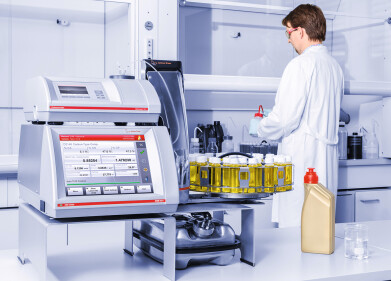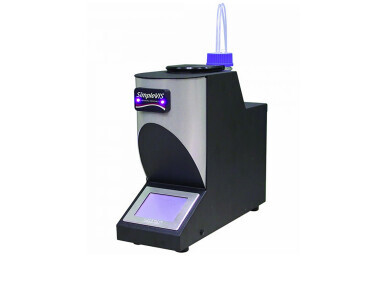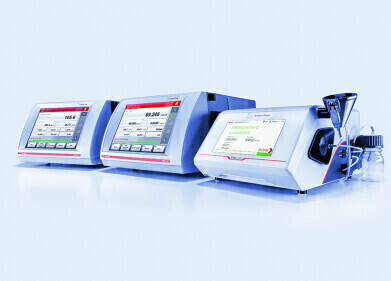Viscometer
Precise and dependable viscosity measurements - the key to overcoming lubricant contamination
Nov 14 2023
In the lubricant industry, ensuring product integrity has never been more critical. Viscosity, is a critical indicator of a lubricant's physical properties, takes centre stage in our exploration of challenges related to contamination, the significance of viscosity certificates, and the transformative influence of field-capable viscometers, especially the SimpleVIS solution by Cannon Instrument Company.
Problem Overview: Mastering Lubricant Contamination
In the journey from manufacturers to end-users, lubricants encounter numerous transitions, offering ample opportunities for contamination. Mislabeling, commingling, and traditional cleaning methods like "line flushing" pose challenges. The diversity of lubricant classes intensifies the issue, requiring strict adherence to standards set by ASTM, ISO, and SAE.
The Role of Viscosity Certificates: A Critical Evaluation
Formulated lubricants undergo rigorous testing, accompanied by Certificates of Analysis (COA) to ensure compliance before reaching distributors. Therefore, the need for a reliable verification method is paramount.
Understanding Viscosity: The Key to Lubricant Identification
Viscosity, measuring a fluid's resistance to flow, emerges as a critical parameter. Kinematic viscosity, graded in Centistoke (cSt) or mm2/s, offers a standardised approach. Lubricants are graded based on kinematic viscosity, providing a unique opportunity to identify errors by verifying if the viscosity falls within grade limits. The diversity of lubricant classes intensifies the issue, requiring strict adherence to standards set by ASTM, ISO, and SAE.
Temperature's Influence on Viscosity: Choosing the Optimal Conditions
Temperature variations significantly impact petroleum viscosity. The difference of viscosity values between adjacent grades is highly sensitive to the temperature of measurement which are often performed at 40oC and 100oC. the greater the separation of viscosity between grades, the higher the probability of accurately determining the grade of lubricant.
Revolutionary Field-Capable Viscometers: A Game-Changer
Historically, field viscosity measurements posed challenges due to the need for sensitive laboratory instruments. Standard viscosity comparators lacked accuracy, making them unsuitable for detecting moderate viscosity differences. Enter a new class of field-capable viscometers, especially the SimpleVIS by Cannon Instrument Company, offering quick, accurate, and cost-effective solutions.
The SimpleVIS Advantage:
1. Precision Temperature Control: SimpleVIS ensures precise temperature management (± 0.05 °C), minimising errors associated with thermal variations.
2. Affordability and Accessibility: An affordable tool catering to lubricant distributors, maintenance personnel, and field technicians, democratising on-the-spot viscosity testing.
3. Efficiency in Action: Enables quick and easy viscosity testing before installation, saving valuable time and resources.
4. Contamination Sentinel: Identifies contamination or commingling, ensuring the right lubricant for machinery and safeguarding against potential issues.
Digital Edition
PIN 25.4 Aug/Sept
September 2024
Analytical Instrumentation - Novel and Rapid LSC method for the analysis of biogenic carbon in fuels Measurement and Testing - Matrix evaluation on the Xplorer-V with Vectra autosampler accordi...
View all digital editions
Events
Nov 04 2024 Abu Dhabi, UAE
Nov 04 2024 Kigali, Rwanda
Nov 05 2024 Toronto, Canada
Nov 05 2024 Paris, France
Nov 12 2024 Cologne, Germany



















